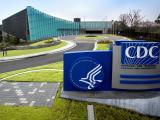New poll results show that 4 in 10 US adults say that recent changes in federal leadership will erode their trust in public health recommendations, while just over a quarter say they will gain confidence, with results divided by political bent.
Just over 100 days into the Trump administration, a March poll of 3,343 US adults by the Harvard T.H. Chan School of Public Health and the de Beaumont Foundation reveals simmering suspicion after a recent plethora of federal leadership edits.
Examples of the changes include the installation of leaders such as Robert F. Kennedy Jr. as US Department of Health and Human Services (HHS) secretary and the ouster of people like Peter Marks, MD, as the Food and Drug Administration's (FDA's) top vaccine official.
For context, Americans' faith in its public health institutions—especially among conservatives—has been declining for years, bottoming out during the COVID-19 pandemic.
'New fault lines are emerging'
While trust in the Centers for Disease Control and Prevention (CDC) has stayed relatively stable in the past couple of years—with 77% of adults saying they have a great deal (38%) or some (39%) trust in the agency's public health advice—it might not remain as high.
When asked about the next 4 years, 44% of respondents said the new leaders will make them trust their health recommendations less than they used to, including 14% who said "a little less" and 30% who said "a lot less." Another 28% said the changes will lend credence to the recommendations, with 18% saying "a little more" and 10% indicating "a lot more," and 27% expecting their trust to remain steady.
Results diverge along partisan lines, with 76% of Democrats saying they will lose trust, including 56% predicting that their confidence will drop "a lot." Most Republicans (57%), however, said they will gain trust, and 23% said the changes will earn "a lot" of their trust.
A total of 80% of Republicans said the CDC will function better in the next 4 years, while 83% of Democrats believe it will become less effective. Most adults who believe the CDC will function worse are worried that it will make health recommendations that are influenced by politics (76%); eliminate or drastically pare programs (75%); downplay important health problems, such as infectious diseases (72%); and restrict public access to information about, for example, vaccines (70%).
Other concerns are that the CDC's health recommendations will be influenced by corporations and big business (68%) or based on unproven or fringe science (63%), with less attention on health disparities between rich and poor people (64%) and among racial minority groups (61%).
"New fault lines are emerging in trust for public health agencies," survey lead Gillian SteelFisher, PhD, of Harvard, said in a university press release. The survey findings suggest "that if leaders want to grow trust, the American people will need to see more effort to sustain public health capacity than what they've seen so far."
Shared priority health areas
Among those who believe the CDC will become more effective, a third or less said they are very confident it will reduce waste (33%), make health recommendations based on evidence ignored by previous leaders (28%), focus more on primary health problems such as chronic illness (27%) and improve overall health (26%).


















